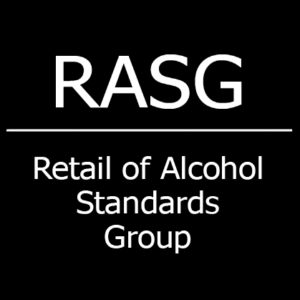
About Challenge 25
Impact of Challenge 25
In 2015 RASG undertook a research project to understand more about the impact and effectiveness of Challenge 25. The “Rising to the Challenge” report outlines the findings of that research, which included polling, focus groups and data analysis.
Resources
RASG developed a suite of poster, shelf slider and badge designs with the Challenge 25 branding for use in any store in the UK. These are available to download free and include versions for use in Wales and Scotland.
FAQs
RASG have pulled together a range of Frequently Asked Questions and Answers to help those that have enquires about the operation of Challenge 25 or application of Challenge 25.
Challenge 25 is a retailing strategy that encourages anyone who is over 18 but looks under 25 to carry acceptable ID (a card bearing the PASS hologram, a photographic driving license or a passport) if they wish to buy alcohol. Introduced as Challenge 21 in 2006, Challenge 25 rolled out in the off trade in 2009.
In 2005 major retailers were brought together by the then Home Secretary after some poor test purchasing results as part of the Government’s Alcohol Misuse Enforcement Campaign (AMEC). In response to this challenge, off trade retailers formed the Retail of Alcohol Standards Group (RASG) with a view to eradicating underage sales.
Research was commissioned into why it is these sales were taking place and to look for policies that could be implemented to prevent this. The key finding of the research was that checkout staff found it incredibly difficult to guess the age of a person, and so often made mistakes. Additionally, some staff were wary about confrontation and found it difficult to challenge people, particularly as some customers can get aggressive or violent when challenged.
RASG therefore developed and adopt Challenge 21 (later Challenge 25) as a way of giving staff a buffer zone, should they not be able to accurately guess the age of a customer. This was on the basis that if you guess the wrong age at 21, you are less likely to make a mistake and serve someone underage than if you are guessing at 18. Importantly, the scheme wasn’t just about the posters. Staff were given detailed training on the scheme and support with additional training like conflict resolution. This was an important cultural change for organisations. In addition to signage and training, managers were trained not to overrule staff who had made challenges, to ensure that they felt they could rely on back up.
While the results were impressive following the implementation of Challenge 21, it was felt that a greater buffer above 21 could produce an even greater impact. The national retailers – co-ordinated by RASG – therefore voluntarily moved up to 25, while the on trade continued to operate Challenge 21.



